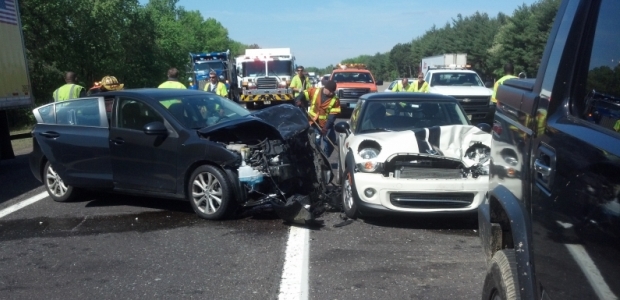
Thirteen States Earn Advocates' 'Worst' Rating for 2017
"Our country is approaching nine years without a single death caused by a commercial aviation crash yet, today, we can't go 15 minutes without a single death caused by a motor vehicle crash. Going forward, the most promising and pragmatic strategy at hand is adopting safety laws and advancing available safety technologies," said Jackie Gillan, President Emeritus of Advocates.
Advocates for Highway & Auto Safety has released its "2018 Roadmap of State Highway Safety Laws," the 15th edition of an annual report that rates all U.S. states and the District of Columbia on the adoption of 16 fundamental traffic safety laws. The organization, an alliance of consumer, medical, public health, and safety groups and insurance companies and agents trying to make America's roads safer, said this report card exposes more than 400 missing safety laws nationwide and is "an essential tool that state elected officials should use to improve roadway safety for all motorists as 2018 state legislative sessions kick off.
Advocates said this report, our Jan. 22, also highlights the need for advanced vehicle technologies in all cars. While manufacturers have been promoting autonomous vehicles, those are years away from a safe mass deployment, while known, lifesaving equipment exists now that can save lives, prevent serious injuries, and eliminate billions in related costs to society, it says, citing collision avoidance and automated enforcement as well as ways to improve large trucks' and rear seats' safety.
"Advocates has spent decades fighting for vehicle safety technology, and we, too, believe driverless cars have the potential to one day make our roads a dramatically safer place," said Advocates President Cathy Chase. "Yet in the meantime, approximately 100 people are killed and 6,500 more are injured in crashes every day, on average, even though we have proven safety solutions highlighted in our Roadmap Report. Further, this comes with a significant economic burden on society. Each person in America pays an annual 'crash tax' of $784. When loss of life, pain, and decreased quality of life are factored in, society shoulders $836 billion a year. This significant emotional and economic toll must be addressed with urgency and immediacy."
The 2018 report promote a two-track path to preventing deadly crashes. The first track involves adoption of effective state highway safety laws that encourage the use of seat belts, motorcycle helmets, and child safety seats. The second track is the widespread adoption of advanced safety technologies that are already on the market, including collision avoidance, automated speed and red-light enforcement systems, and ignition interlocks.
Jackie Gillan, President Emeritus of Advocates, said, "The reality of our entire vehicle population being replaced with cars operated by computers instead of humans is still decades away. And until that happens, we face the reality that motor vehicle crashes will continue to kill hundreds of thousands of people, cause millions of injuries, and cost billions of dollars in societal costs. Our country is approaching nine years without a single death caused by a commercial aviation crash yet, today, we can't go 15 minutes without a single death caused by a motor vehicle crash. Going forward, the most promising and pragmatic strategy at hand is adopting safety laws and advancing available safety technologies, as highlighted in Advocates' 2018 Roadmap Report. We cannot allow lawmakers and policymakers to hide behind tomorrow's promise of driverless cars by prolonging adoption of laws and technology that could be saving thousands of lives today."
The report gives every state and Washington, D.C., a rating in five categories (Occupant Protection, Child Passenger Safety, Teen Driving, Impaired Driving, and Distracted Driving) and an overall grade of Green (Good); Yellow (Caution); or Red (Danger). With 13 out of 16 safety laws on the books, Rhode Island earned the top green rating. Others with a green rating are Delaware, Oregon, Washington, California, Louisiana, and the District of Columbia. There are 13 states with a red rating, however, indicating Advocates believes they lag seriously behind when it comes to adopting its recommended laws: South Dakota, having adopted just two of 16 safety laws, tops this year's worst list; the others with a red rating are Wyoming, Arizona, Missouri, Montana, Florida, Nebraska, Virginia, Idaho, Iowa, New Hampshire, Ohio, and Vermont.
The report says 16 states lack an optimal primary enforcement seat belt law for front-seat passengers, and 31 states need an optimal primary enforcement seat belt law for rear-seat passengers. Likewise, 31 states need an optimal all-rider motorcycle helmet law.
Seven states need an optimal all-driver texting ban, it says and 19 states and D.C. lack optimal laws restricting cell phone use for teen drivers.